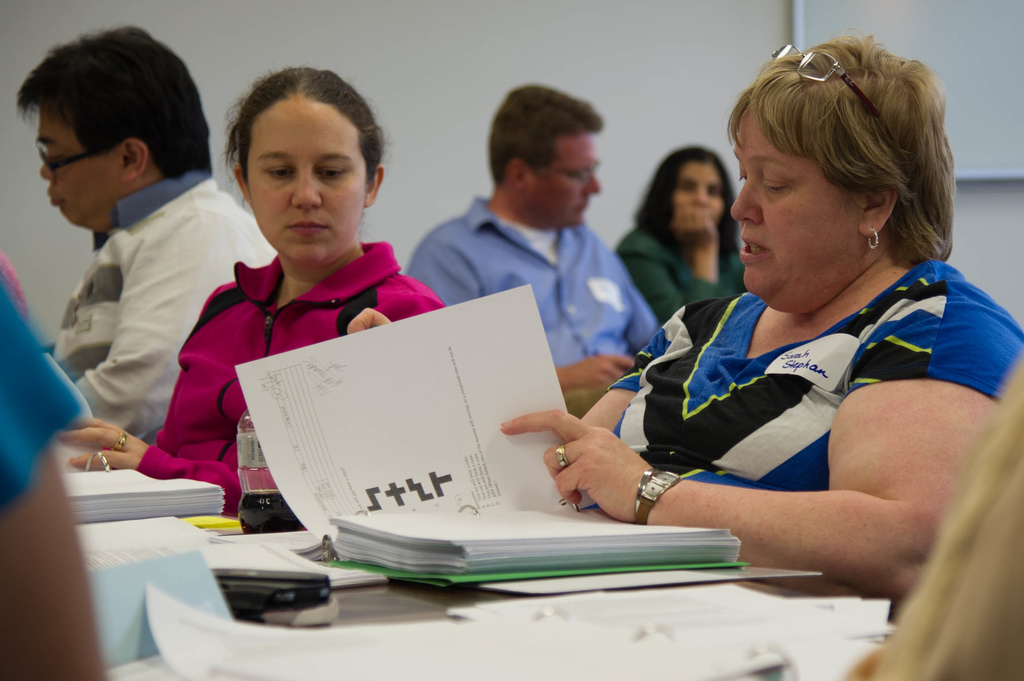
Angie Montgomery, a fourth-grade teacher in Red Oak will have a new perspective on the Iowa Assessments when she presents them to her students next year.
Montgomery was among approximately 30 teachers from across Iowa that convened in Iowa City this summer to review new questions on the tests and provide feedback to the Iowa Testing Programs’ test creators. The Iowa Testing Programs (ITP) is a research, development, and outreach unit in the University of Iowa College of Education.
“It’s interesting to see what goes into making a test and the input they get from educators,” Montgomery says. “I feel like we are heard. It’s a good process.”
Tim Hazen, an assistant director of test development at ITP, says the teacher review is an “essential step” in the test development process.
“Teachers draw from their training as educators as well as their real-world classroom experience to provide feedback and perspectives on new test materials that cannot otherwise be replicated,” he says.
Teachers this summer focused on Language Arts, Math, Science, and Social Studies questions at all K-12 grade levels.
Teacher reviewers are called in each time ITP initiates a new development cycle. ITP leaders invite a diverse group, recruiting teachers from a variety of locations within the state, from small, medium, and large-sized districts, from urban and rural districts, as well as teachers with different ethnic backgrounds.
Hazen, who earned his Ph.D. from the college’s Psychological and Quantitative Foundations department in 2009, says teachers receive the test questions ahead of time so they can consider the materials independently before meeting for group discussions.
“Content specialists receive written teacher feedback on these materials, and they record teacher comments during the often lively group discussions that take place during the panel reviews,” Hazen says.
ITP content specialists then edit the materials to incorporate teacher feedback prior to trying out the items on student examinees. ITP also convenes a separate panel to review new materials for any fairness or sensitivity issues that might potentially disadvantage any particular group of examinees.
Amy Leathers Blau, a fifth-grade teacher in Spencer, says the experience was “enlightening.”
“It’s a good experience,” she says. “Now I see the tests in a whole new way and understand all the work that goes into creating the tests before they arrive at my school.”